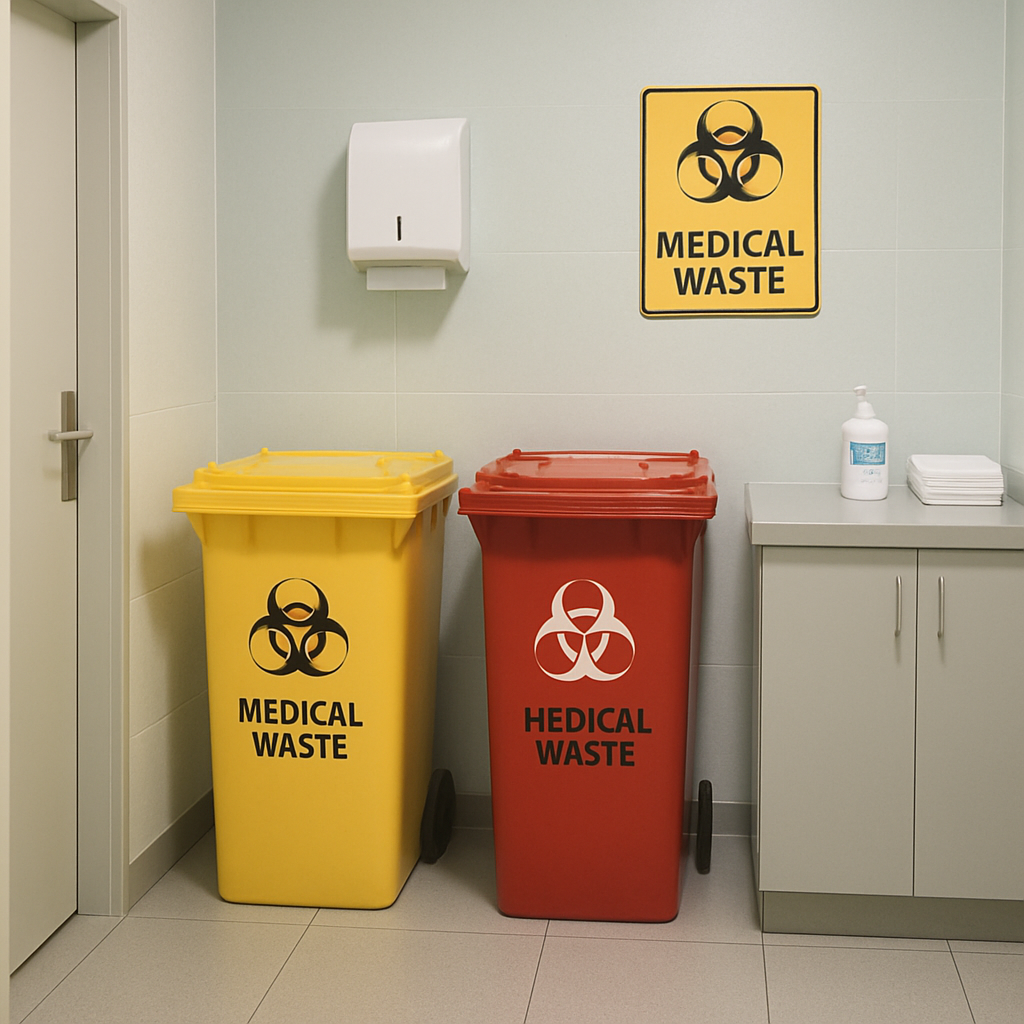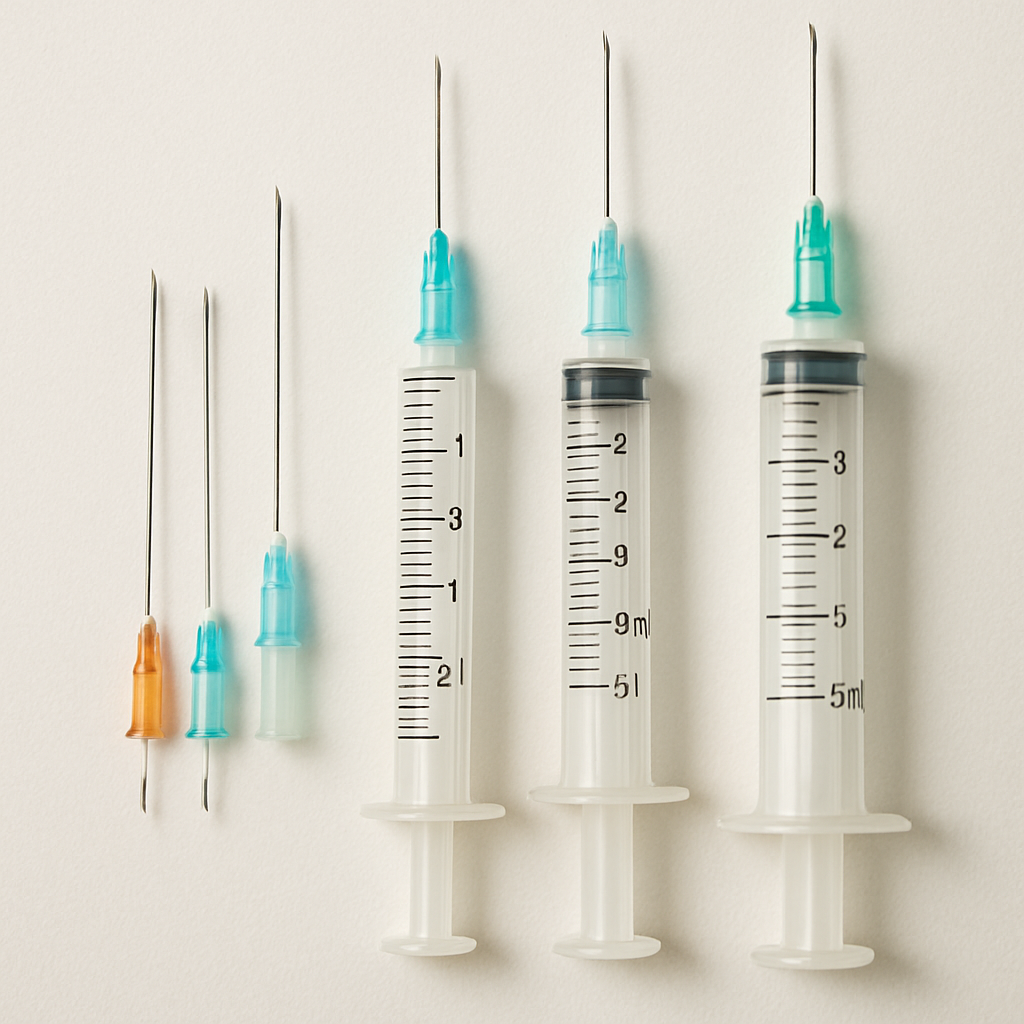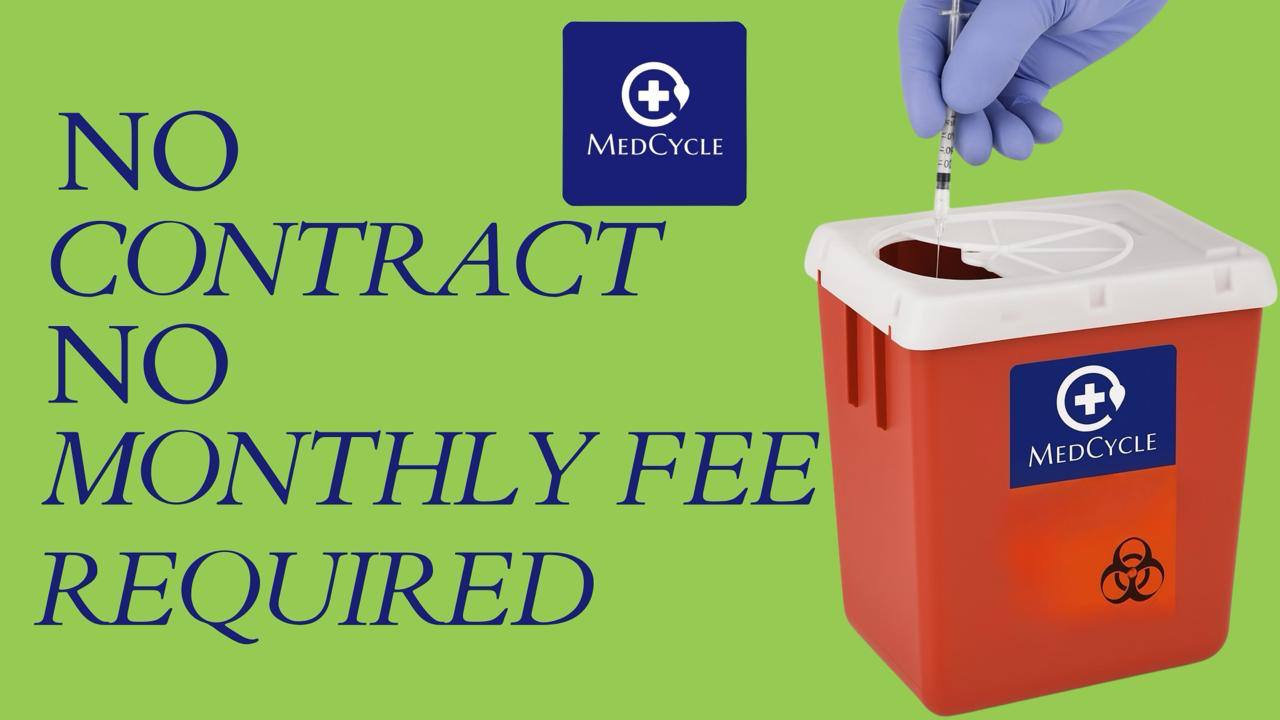Managing medical waste is one of the most important tasks in healthcare. Whether you run a small clinic, a dental office, a vet clinic, a pharmacy, or a large hospital or surgery center, knowing how to dispose of medical waste correctly protects your staff, patients, and community.
If medical waste is not handled properly, it can spread infections, contaminate water supplies, or result in heavy fines for non-compliance. The good news is that with the right steps and a trustworthy partner like MedCycle, you can make the entire process safe, efficient, and hassle-free.
In this guide, we’ll cover everything you need to know about medical waste management, including types of waste, color-coded bins, best practices for hospital waste disposal, regulations, and frequently asked questions.
Why Safe Medical Waste Disposal Matters
Before we get into the step-by-step process, let’s talk about why this is so important.
- Health risks: Incorrect disposal can expose staff, patients, and the public to bloodborne pathogens like HIV and Hepatitis B.
- Legal risks: Federal and state regulators, like the EPA and OSHA, set strict rules, and violations can lead to fines.. EPA Medical Waste Guidelines
- Environmental risks: Hazardous waste can contaminate soil, rivers, and groundwater if not treated.
To wrap-up, safe disposal is not just a regulation, it’s a responsibility.
Types of Medical Waste
Not all medical waste is the same, so knowing the categories helps you use the right handling and disposal methods.
Infectious Waste
- Anything contaminated with blood, fluids, or pathogens.
- Examples: used dressings, surgical drapes, lab cultures.
Sharps Waste
- Objects that can puncture skin.
- Examples: needles, scalpels, syringes, broken glass.
Pathological Waste
- Human tissues, organs, or body parts.
- Typically requires incineration for safe destruction.
Chemical Waste
- Lab reagents, disinfectants, solvents.
- Needs chemical neutralization or special disposal.
Pharmaceutical Waste
- Expired, unused, or contaminated medications.
- Must be kept out of water systems to prevent contamination.
A key principle of medical waste management is proper segregation. Each type of waste requires its own container and treatment.
Step-by-Step Guide: How to Dispose of Medical Waste
Here’s the process your clinic or hospital should follow every day:
Step 1: Segregation at the Source
- Use color-coded bins:
- Yellow → infectious waste
- Red → sharps
- Blue → pharmaceuticals
- Black → chemicals
- Train staff on bin usage.
- Segregate immediately at point of care (don’t let waste pile up).
Step 2: Safe Collection and Handling
- Seal bags and containers when full (never overfill).
- Label with waste type and date.
- Staff should wear PPE (gloves, aprons, masks).
- Supervisors should run spot checks for compliance.
Step 3: Secure Storage
- Store in a designated, ventilated room away from patient areas.
- Restrict access to authorized staff only.
- Place warning signs on storage doors.
Step 4: Transportation
- Only use licensed waste transporters.
- Vehicles must be sealed, leak-proof, and designed for biohazard transport.
- Double-bag waste and use puncture-resistant containers for sharps.
Step 5: Treatment & Final Disposal
- Incineration → for pathological & pharmaceutical waste.
- Autoclaving → for infectious waste (steam sterilization).
- Chemical disinfection → for chemical waste.
- Land disposal → only for treated, non-hazardous remains.
Hospital Waste Disposal: Special Considerations
Large facilities like hospitals generate significant amounts of waste daily. Hospital waste disposal requires more than just bins:
- Dedicated Waste Officers: Hospitals should assign compliance officers for oversight.
- Regular Audits: Track volumes, types, and disposal methods.
- Emergency Protocols: Staff must know what to do in case of a spill, exposure, or container rupture.
- Partnerships with Licensed Companies: Hospitals often outsource disposal to companies like MedCycle to ensure compliance.
For more detail, see CDC Guidelines for Infection Control & Waste.
Legal and Environmental Responsibilities
Healthcare providers in the U.S. must follow regulations from:
- OSHA (Occupational Safety and Health Administration): Sharps disposal and staff safety (OSHA Sharps Safety).
- EPA (Environmental Protection Agency): Waste treatment and environmental protection.
- State Agencies: Local requirements can vary, so always check with your state health department.
Penalties for non-compliance can reach thousands of dollars. Beyond the money, improper disposal damages your reputation and risks public health.
MedCycle’s Role in Safe Waste Disposal
At MedCycle, we provide:
- Collection & Transport → licensed, compliant pickups for clinics and hospitals.
- Treatment & Disposal → incineration, autoclaving, chemical treatment.
- Training → staff workshops on segregation and compliance.
- Sustainability Focus → eco-friendly disposal and recycling where possible.
Working with MedCycle means you are in good hands: your waste is safe, compliant, and in an environmentally responsible way and you don’t need to sign any long term contracts. Medcycle offer monthly services and no contract needed because they are professional and are trusted by many clinics across the Texas especially Houston, Dallas, Austin, San Antonio and ect.
Frequently asked Questions:
Q1. How to dispose of medical waste in a small clinic?
Small clinics should segregate waste at the source using color-coded bins, store it securely, and partner with a licensed provider like MedCycle with no contract needed.. The key is to never mix medical waste with regular trash — that keeps patients, staff, and the community safe.
Q2. What is the safest way to dispose of sharps waste?
The safest method is to place needles, syringes, and scalpels in puncture-resistant sharps containers. Once filled, they must be sealed and collected by a licensed medical waste disposal service. According to OSHA Sharps Safety, this prevents accidental injuries and infections.
Q3. How does hospital waste disposal differ from clinics?
Hospitals generate more waste and require dedicated waste officers, regular audits, and emergency spill protocols. Clinics typically outsource all disposal, while hospitals need ongoing systems and compliance teams.
Q4. Can medical waste go in regular trash bins?
No. Medical waste must never be mixed with general garbage. Putting infectious or sharp waste in household trash risks spreading diseases, contaminating landfills, and can lead to regulatory penalties.
Q5. What is the cost of medical waste management?
The cost depends on how much waste you generate, its type, and your location. On average, regulated medical waste disposal costs $0.50–$1.00 per pound in the U.S. MedCycle offers flexible, no-contract monthly services across Texas to keep costs manageable.
Q6. Who regulates medical waste disposal in the U.S.?
The EPA, OSHA, and state health departments oversee regulations. Facilities must follow both federal and state guidelines to stay compliant.
Q7. What happens to medical waste after pickup?
Depending on the category, waste is incinerated, autoclaved (steam sterilization), or chemically treated to destroy pathogens before being sent for safe disposal. Some waste may even be processed into energy as part of eco-friendly initiatives.
Continuous Improvement in Medical Waste Management
Healthcare waste disposal is not static — it’s evolving:
- Technology: Automated tracking and AI-based inventory management are improving compliance.
- Eco-friendly solutions: More facilities are turning to waste-to-energy plants and green disposal methods.
- Staff training: Regular refreshers are essential for safety and compliance.
Staying updated ensures your facility remains compliant, efficient, and environmentally responsible.
Conclusion
Learning how to dispose of medical waste properly is about more than ticking a compliance box, it’s about protecting people and the planet.
By following step-by-step segregation, safe handling, secure storage, and licensed disposal, your facility can maintain the highest standards of medical waste management. Whether it’s a small clinic or a large hospital, partnering with experts like MedCycle ensures your waste is handled with safety, compliance, and sustainability in mind.
Your commitment to hospital waste disposal done right safeguards staff, patients, and communities. And that’s a responsibility worth getting right every single day.



